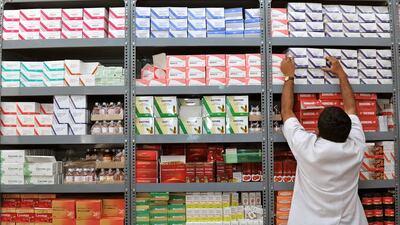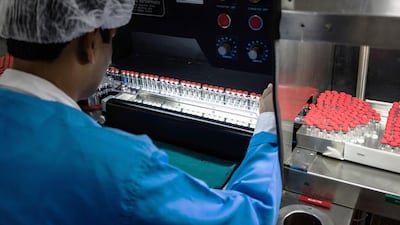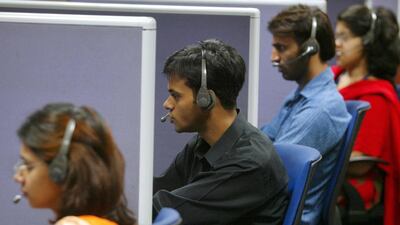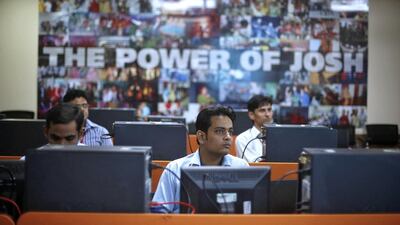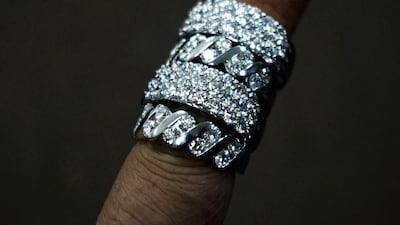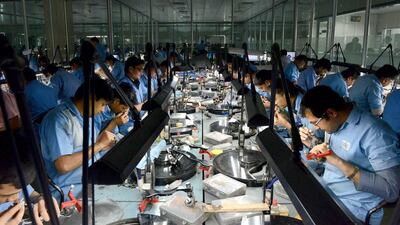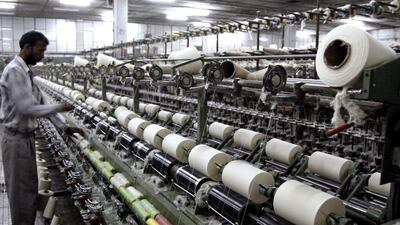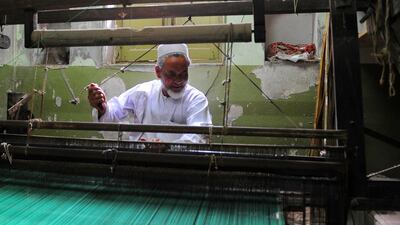MUMBAI // A disagreement between India and the European Union (EU) is holding back crucial negotiations over a long pending trade deal, which would offer an enormous boost to India’s economy.
The two economies urgently need to overcome the deadlock for the benefit of both, analysts argue.
India this month indefinitely stalled trade talks with the EU following a ban on hundreds of Indian generic drugs by the 28-member bloc.
At stake is the growth of a multibillion-dollar trade and investment market between India and Europe.
“This is a very unfortunate development,” says Mahesh Singhi, the managing director of Singhi Advisors, a global investment banking firm based in Mumbai. “After a two-year gap, India and the EU were expected to resume talks on the proposed free trade agreement to boost two-way commerce and investment.”
The EU last month banned 700 generic drugs made in India, which were clinically tested by GVK Biosciences in Hyderabad, because of concerns over irregularities in the trials.
Tensions then escalated when, in reaction, the Indian government decided to defer negotiations over a long-awaited free trade agreement with the EU – known as the broad-based trade and investment agreement – that were expected to take place this month. The Indian government said it was “disappointed and concerned” by the EU ban, pointing out that pharmaceuticals was one of India’s “flagship” sectors.
This adds to the pressure on India’s pharmaceutical industry following bans in the US on some Indian drugs because of doubts raised over the quality of the products.
The negotiations over the free trade agreement, which would lift barriers on trade and investment, stalled two years ago as the two parties failed to see eye to eye over requirements demanded by both sides. India has been reluctant to give in to the EU’s demands for reduced duties on spirits and cars.
Brussels, meanwhile, has not budged on New Delhi’s push for being granted “data secure nation” status and more relaxed immigration rules for flows of skilled workers to the EU, which would give a huge boost to India’s IT sector as companies try to expand in Europe. Lack of recognition by the EU of India as a data-secure nation, which suggests a shortfall in the country’s data security system, holds back the generation of outsourced business for India because of restrictions that make it more complicated and costly for European companies to deal with the country for such processes.
The EU is India’s largest trading partner. The value of trade between EU and India increased to €72.5 billion (Dh296bn) last year from €28.6bn in 2003, according to figures from the European Commission. Trade in commercial services almost quadrupled over a decade to €23.7bn in 2013 from €5.2bn in 2002.
Textiles and clothes, jewellery, gems, IT services, as well as pharmaceuticals, are among the major exports of goods and services to the EU from India.
“For India, missing out on the trade pact with the EU is clearly an opportunity lost,” says Saravana Kumar, the chief investment officer, equity and debt, at LIC Nomura Mutual Fund.
India’s business loss from the ban could be $1.2bn, Mr Singhi says.
Talks on the free trade agreement first started in 2007 and there have been 15 rounds of negotiations.
“There are many issues why we could not reach a conclusion so far,” says Mr Singhi. “EU wants import duty on European cars to be cut. Then EU is also looking at sensitive sectors like insurance, banking and retail as major areas for economic engagement with India. India specifically focuses on the clause that allows greater flexibility in the movement of skilled professionals without restrictions like those pertaining to their experience in the field.
“Since the EU does not have a common working visa, it restricts Indian professionals from moving freely across EU nations. India is also unhappy as EU wants to put sectoral caps on visas for Indians.”
If a free trade agreement were to be reached, this would give a huge boost to trade and investment. India is highly dependent on flows of investment from Europe. India received almost US$25bn in foreign direct investment (FDI) from the EU between April 2012 and May 2015, according to figures reported by the Press Trust of India news agency.
The agreement is all the more vital because Indian exports have come under pressure, contracting for seven consecutive months until June this year amid economic woes in Europe and the United States.
“With global demand contracting, emerging markets are looking to grab pieces of the shrinking global trade pie,” says Devendra Kumar Pant, the chief economist at India Ratings and Research.
One of the prime minister Narendra Modi’s key aims is transform India into a global manufacturing hub under his “Make in India” campaign and the EU would play a major role in achieving these ambitions.
The European Commission has identified India as a market that is becoming an increasingly important part of the global economy and a key growth market. But there are a number of hurdles when it comes to the ease of doing business in the country, it says.
“India’s trade regime and regulatory environment remains comparatively restrictive,” it says in information published on its website. “India still maintains substantial tariff and non-tariff barriers that hinder trade with the EU. In addition to tariff barriers to imports, India also imposes a number of non-tariff barriers in the form of quantitative restrictions, import licensing, mandatory testing and certification for a large number of products, as well as complicated and lengthy customs procedures.”
Some progress has been made to dismantle trade barriers in India in recent years, the European Commission notes. These include raising the caps on FDI limit in the insurance and defence sectors.
It says that a free trade agreement between the two economies “would be one of the most significant trade agreements”, with a population of more than 1.2 billion in India.
“With its combination of rapid growth, complementary trade baskets and relatively high market protection, India is an obvious partner for a free trade agreement for the EU,” it says.
But with the EU and India yet to overcome the latest obstacle, there is indication at this point that the negotiations might resume any time soon.
“It will be good for both parties if we could reach some conclusion,” says Mr Singhi. “But it is uncertain at this point of time how and when the negotiations will get back on track.”
business@thenational.ae
Follow The National's Business section on Twitter
